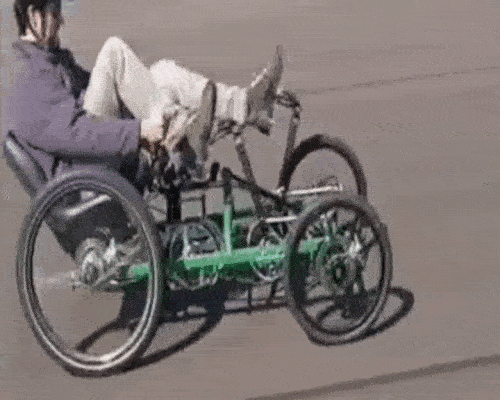
The idea of travelling in an extremely small and lightweight vehicle that will not move without physical effort from its driver will seem outlandish to motorists who do little more than turn a key, but we are great fans of human powered vehicles (HPVs). These environmentally benign vehicles could have a transformative effect on the way we get about town and cities by putting an end to road danger, noise pollution and the obesity epidemic.
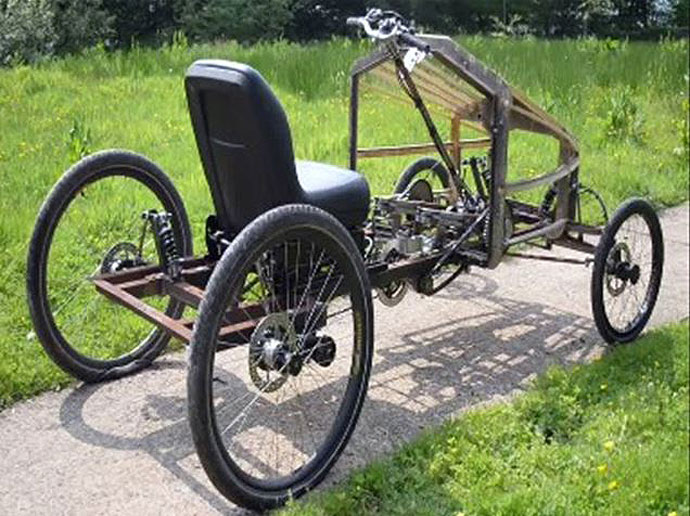
The HUMO is open source project taking a novel approach to the HPV. Inspired by the industrial application of ratchets, inventor Sebastian Cruft aims to build a human powered vehicle with an unassisted cruising speed on 25 mph. On a HUMO, the cranks rock through the vertical position. With a choice of axle positions you can end up with cranks that are up to three times the length of a normal bike crank.

The arrangement trebles the torque for the same amount of human power. At present the penalty for the clever engineering is weight – the current prototype has a steel construction and weighs 80 kg. However, the team expects an aluminium version to tip the scales at only 20 kg. Further details at humocars.com
The idea of human-powered cars is not new. Pedal-powered vehicles proved a popular way of getting about towns and cities in France during the 1930s and 40s. So efficient were these lightweight machines, that they broke cycling speed records before being promptly declared ineligible to race by cycling’s governing body.
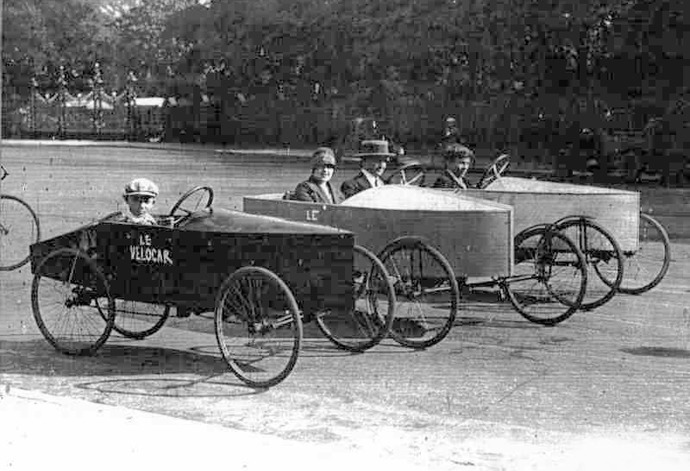
The sporting world’s loss looks to be our gain; a handful of forward-looking groups are updating the pedal car concept with the latest technology and engineering.
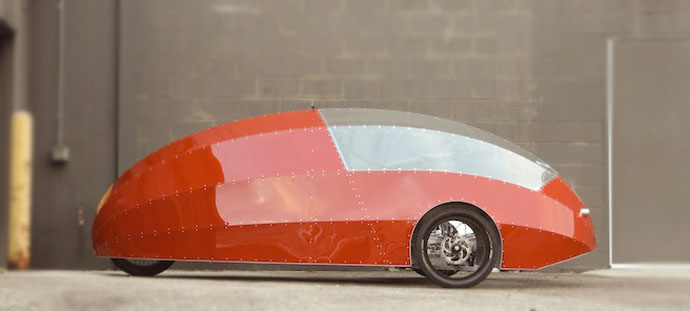
In a similar vein to the Humo, The Veemo is a ‘non-car personal transportation alternative’. The Zeppelin is a human electric hybrid vehicle. It is powered by two riders, but unlike the Humo, it relies on a 750 w electric motor to reach a cruising speed of 25 mph. Built from aluminium and polycarbonate, it weighs 122 kg and has a 30 km electric range. In America, the Zeppelin meets the legal definition of a bicycle in many states, making it street legal with no license, registration, or insurance required.
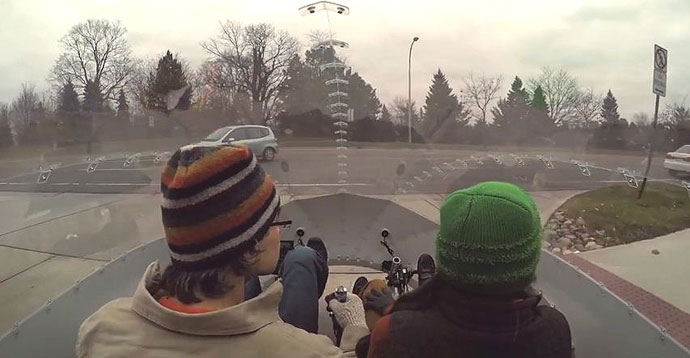
Light and airy – the view from the Zeppelin cabin
The Future Cycles project was born from a realisation that current transport infrastructure would outlive the petrol-powered vehicles that currently use it; begging the question: “What transportation alternatives could replace these vehicles that would deal with shifting energy availability and still provide the kind of independent travel that our infrastructure requires?”
Any alternative would need to be much lighter in weight, highly efficient, use only local sustainable energy, and be inexpensive to own and maintain. The Zeppelin trike combines weather protection and carrying capacity of a car with the efficiency of a bike. The goal was to create a car-like experience in a vehicle that is human powered and legally defined as a bicycle.
Through the design, fabrication, and demonstration of these vehicles, pioneers like Humo hope to challenge us to consider the use of human energy as an alternative to fossil fuels. Our future rests in their hands.
What is a safe car?
Most people would not yet consider using a vehicles like the Humo or Zeppelin on the roads because of fears over safety, but what constitutes a ‘safe’ car? There is a perception that large, heavy cars such as 4X4s are safe, but any added protection they offer their occupants is very much at the expense of any other road user with which they collide. Human-powered vehicles are designed to operate in urban areas at low speeds. This makes them less of a risk to pedestrians and less damaging to the road surface. Furthermore, they are economical and near-silent. If the 20 mph limits in urban areas were respected, HPV vehicles such as the Zeppelin or Veemo would come into their own.
ETA: Ethical breakdown cover
Established over 25 years ago, and with over 5,000 recovery trucks on call 24/7, the ETA has a proven track record of providing efficient, reliable breakdown cover. We handpick only the best local mechanics and garages around Britain to send out if you break down. We believe this way of working is efficient, environmentally friendly and helps support local communities and economies, too. It’s one of the reasons we have been voted to provide to be an ethical company like no other.
0 Comments View now